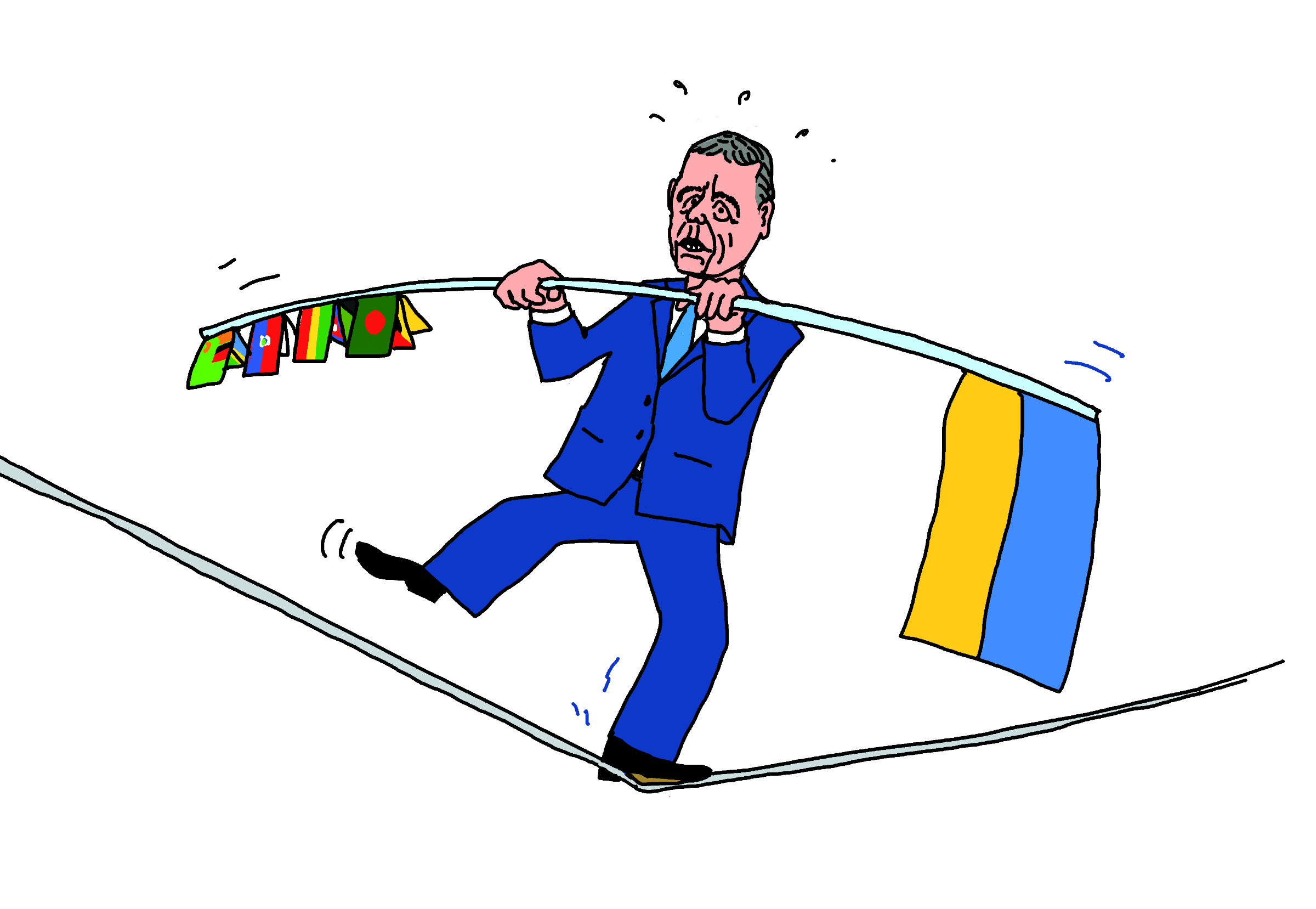Share post now

global
The Alliance Sud magazine analyses and comments on Switzerland's foreign and development policies. "global" is published four times a year (in german and french) and can be subscribed to free of charge.
International Cooperation Strategy 2025-2028
21.06.2024, International cooperation, Financing for development
The Federal Council adopted the long-awaited Dispatch on the 2025–2028 International Cooperation Strategy in mid-May. In it, the Council stands by its policy of funding aid to Ukraine at the expense of the Global South, thereby ignoring the outcomes of the public consultation.

© Ruedi Widmer
In terms of content, the Government makes no significant headway and relies on tried and tested themes and implementation approaches in the 2025–2028 Strategy. And this in a world which, according to the Strategy, is more fragmented, unstable and unpredictable. In this context, the Federal Council opts for more flexibility – its word of the moment. We need flexibility to cope with the current crises, said Federal Councillor Ignazio Cassis at the press conference. But anyone reading the Strategy will soon realise that flexibility merely means funding the entire CHF 1.5 billion in aid for Ukraine from the International Cooperation (IC) budget, and that the amounts for other countries and programmes will therefore be "flexibly" cut back.
At the press conference on 10 April on the Bürgenstock Peace Conference and aid to Ukraine, Federal Councillor Ignazio Cassis had already spoken of the continuous reallocation of resources in international cooperation. Resource allocation was a strategic, dynamic process and not a static approach. Such a dynamic approach can certainly be useful, for example, when it comes to flexibly interlinking the three pillars of international cooperation, namely, humanitarian aid, development cooperation, and peace building (the term 'nexus' is also used). In any case, the boundaries between these areas are often fluid.
International cooperation that constantly shifts its resources between different regions and countries cannot build serious, long-term partnerships. Yet, this is precisely what is needed to operate effectively and efficiently. It takes trust and long-term commitment, in other words, relations that are forged and preserved through development cooperation programmes. Or, as Federal Councillor Cassis said during a dialogue with NGOs in 2022: "Reliability, trust and predictability". If Swiss international cooperation becomes a geopolitical pawn, it will lack the networks and staffing it needs on the ground. The war in Ukraine has marked a turning point, but this ought not to become a reason for Switzerland’s international cooperation programme to jettison what has been built up and jointly achieved with partner countries over many years.
In deciding to fund aid to Ukraine from the international cooperation budget, the Federal Council is dealing several blows at the same time. First, it is a refusal addressed to the Global South, which for years has been calling on wealthy countries to meet the internationally recognised target of 0.7% of gross national income for official development assistance (ODA). Under the Federal Council's proposal, Switzerland's ODA (not including asylum costs) will be 0.36% in 2028. Where, then, is the much-vaunted humanitarian tradition when it is needed?
Another rejection is directed at those who took part in the consultation process. An overwhelming 75% majority of the organisations, parties and cantons that responded to a relevant question stated expressly that aid to Ukraine must not be at the expense of other IC regions and priorities such as Sub-Saharan Africa or the Middle East. No political party supports the funding of Ukraine's reconstruction from IC, except for the Swiss People’s Party (SVP), which, to go by its party programme, wants to dispense with development cooperation altogether. Unfortunately, in the wrangling over federal finances, the Parliament has so far failed to identify ways of implementing this, that could attract majority support.
Foreign observers have not failed to notice that Switzerland is relaxing with its comfortable and lucrative special status as a neutral country, while failing to play a substantial enough role in Ukraine's defence, whether in the form of military or humanitarian support. With a debt ratio of 17.8% of gross domestic product, Switzerland cannot credibly explain to the international community its inability to come up with additional funds for Ukraine. At the same time, through their funding proposals for upgrading the army and for a 13th OASI pension payment, the SVP and the FDP (The Liberals) are peddling the idea that Switzerland can simply renege on its international obligations.
Switzerland is thus increasingly isolating itself and becoming internationally irrelevant. Goodbye mediator role, goodbye humanitarian tradition and reliable partner. The Federal Council has correctly read the signs of the times, but has opted for the path of isolation. That is why only the Parliament can now act to remedy the situation and bring about a change of direction for Ukraine and the Global South.
Share post now

global
The Alliance Sud magazine analyses and comments on Switzerland's foreign and development policies. "global" is published four times a year (in german and french) and can be subscribed to free of charge.